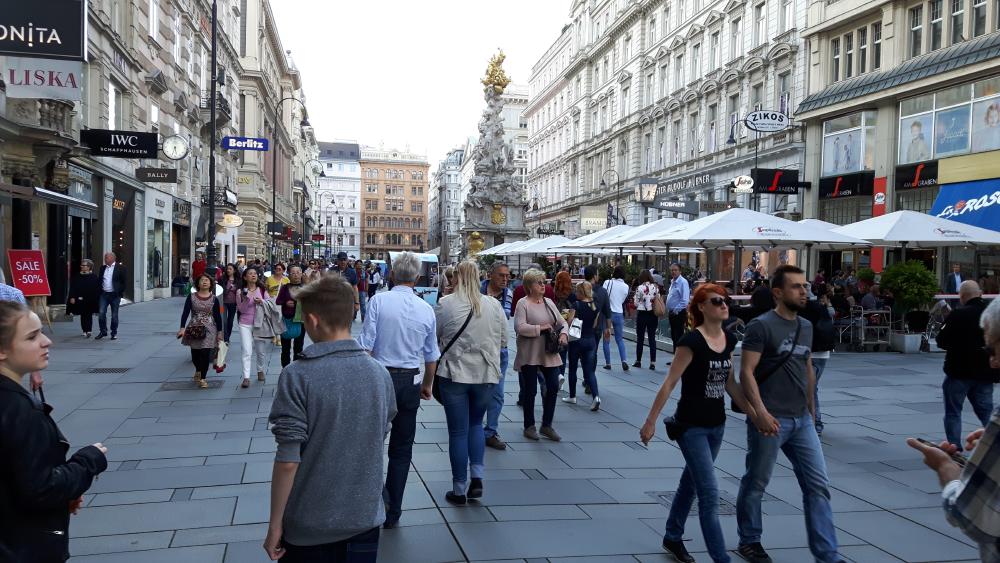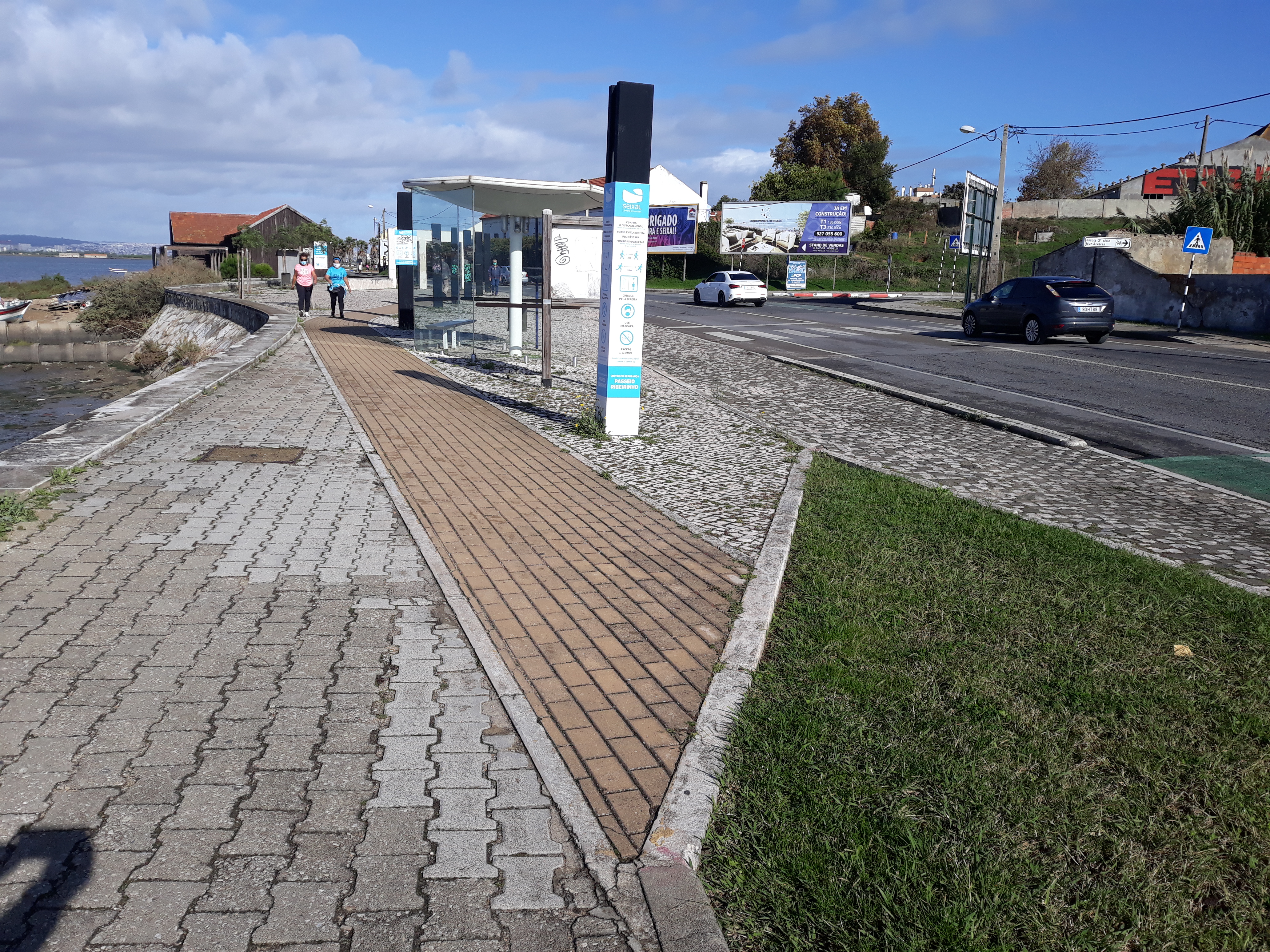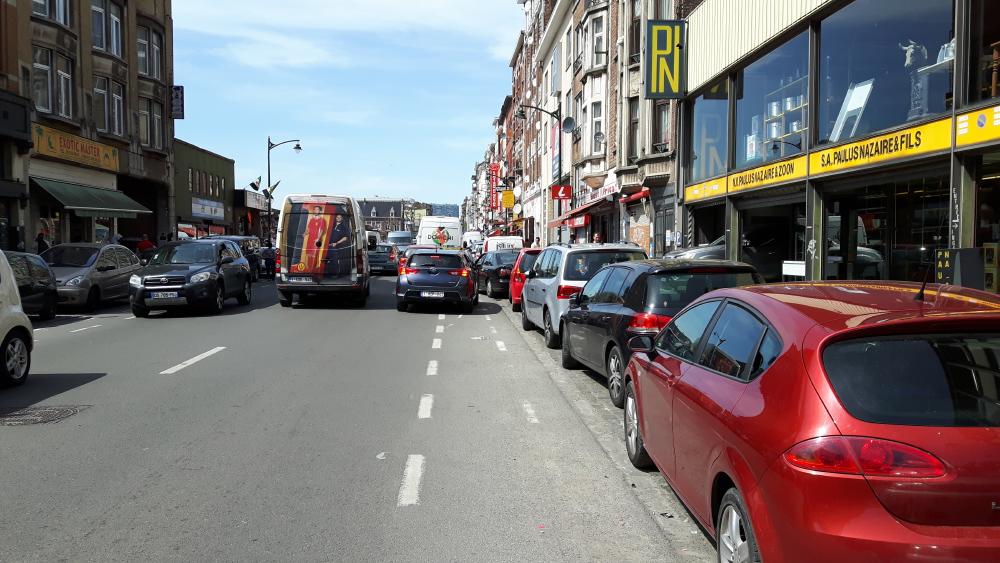In the same section

Sustainable Urban Futures Institute
The research group Sustainable Urban Futures Institute (SUFI) at BATir is dedicated to research activities in the fields of Sustainable Architecture, Urban Design, Regional Planning, Infrastructure and Mobility.
Our research focuses on issues of Sustainability, Climate Change, Environmental and Spatial Quality across multiple scales of the Built Environment. SUFI operates within the systemic framework of Global Ecological Balance and promotes decarbonization and sustainable urban development through innovative design, planning, and policy responses.
SUFI has developed expertise in two strategic research areas: Urban Resource use and Circular Metabolism (URCM), encompassing circular economy and urban metabolism; and Urban Ecosystem Services, Green infrastructure, and Environmental quality (UEGE), including mapping, analysis, optimization, and Nature-based solutions.
We value methodological innovation, employing both quantitative and qualitative methods, spatial analysis, participatory co-production, and research by design in interdisciplinary and transdisciplinary ways. Our research projects span individual grants and collaborative projects with Local, Regional, EU, International, and Development cooperation partners. Founded in 1928 as the "Institute d’Urbanisme" (later IUAT), SUFI shifted its focus towards sustainability in 2013, striving to create resilient, just, and livable cities for the future.
Research Axes
Research at SUFI is conducted along two main research axes:
- Sustainable Architecture and Urbanism – Prof. Ahmed Z. KHAN
- Infrastructure and Mobility – Prof. Philippe BOUILLARD
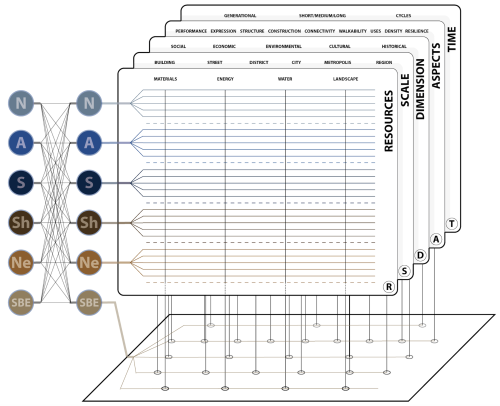
Interdisciplinary knowledge base for Sustainable built environment.
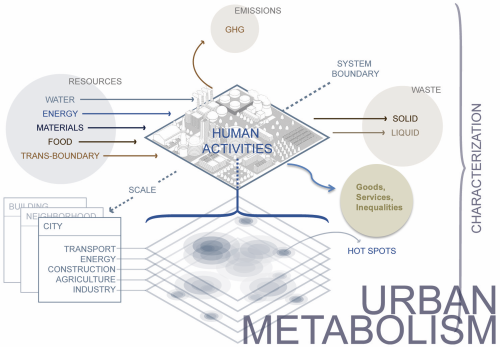
UM as a methodology for urban sustainability analysis and assessment.
Sustainable Architecture and Urbanism - Prof. Ahmed Z. KHAN
The global urban population is set to exceed 9 billion by 2100, intensifying urbanization. However, prevailing models of urbanism, architecture, and patterns of urbanization are resource-intensive, polluting, and unsustainable. Achieving sustainable architecture and urban design necessitates systemic analysis, envisioning sustainable futures, and prioritizing decarbonization. Key questions include: What will sustainable future cities look like, how will they function, and experienced? What type of architecture and urban (re)design is required for decarbonization? How can we ensure thermal comfort, resource (energy, material, water) sufficiency, and environmental and spatial quality sustainably? This research axis, alongside URCM and UEGE, explores six core areas: History and Theory – Examining green consciousness, vernacular architecture, and visions/models of cities of the future (COF); Bioclimatic Design – Analyzing thermal comfort, climate, resources, and passive strategies; Biomimicry - Harnessing nature-inspired principles, biophilia, and bio-based materials; Carbon Neutrality and Sustainability – Developing analysis, accounting, design and assessment methods; Regeneration - Focusing on sustainable urban renewal, inclusive public spaces, and energy-efficient renovation; and Urban Futures – Exploring COF models, scenarios, and research by design.
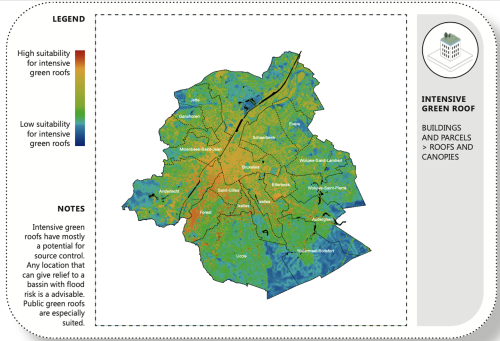
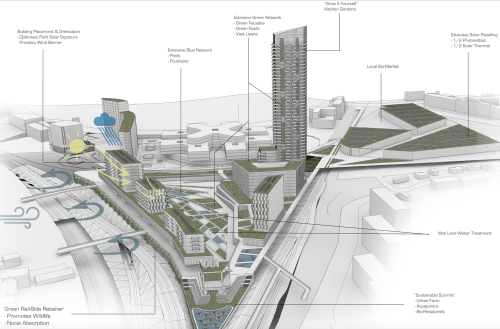
“The urban valley” - Sustainable urban design scenario, Delta, Brussels.
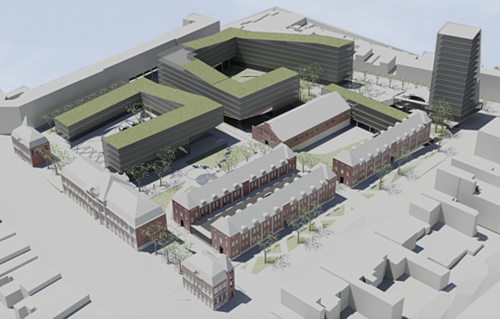
Infrastructure and Mobility – Prof. Philippe BOUILLARD
Transport policies and infrastructure are among the cross-cutting features for sustainable urban futures. The transport industry is taking a significant share in the global warming and climate change responsibility but also has other major negative impacts in terms of noise and safety. The car dominance that has been developed and implemented in most cities led to congested and polluted city centres. In this research axis, we are working on developing sustainable mobility solutions from the perspective of urban design (15-mins city, logistics) and infrastructure (public transport, pedestrians, and cyclists) mainly. The research contributes to reclaiming public space to redevelop the urban environment and (re)create liveable cities.
